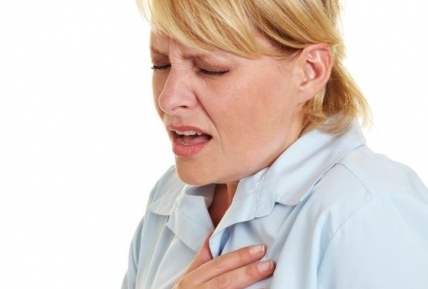An acute heart condition previously thought to recover spontaneously does not necessarily heal with time, new Aberdeen research has found
A team of academics and clinicians, led by Dr Dana Dawson, has spent the last four years investigating acute stress induced (Tako-tsubo) cardiomyopathy, sometimes called ‘broken heart syndrome’.
It is a condition triggered by stress and often confused with a heart attack for which there is currently no treatment available.
Patients experience the severe chest pains associated with a heart attack but when their coronary arteries are investigated, no blockage is found although the heart muscle functions poorly.
For the majority of patients, it follows an episode of major stress such as bereavements, involvement in an accident, divorce or other emotional trigger, which gave rise to the name ‘broken heart syndrome’. It was first described in Japan in 1990 and mostly affects women.
Dr Dawson, a Senior Lecturer in Cardiovascular Medicine at the University of Aberdeen and Consultant Cardiologist at Aberdeen Royal Infirmary said: “Since the condition was identified, work has been done to look at individual cases but there has been little research into these patients as a group.
“Although they haven’t had a heart attack, they are still at high risk and in-hospital mortality after they are admitted is similar to a heart attack. Patients can go downhill very quickly and electrical instability in the heart can develop.
“Acute stress induced cardiomyopathy is a serious condition but after the acute episode it appears that overall the heart pumping function recovers spontaneously and so there is no known treatment for the condition.”
But Dr Dawson’s work, published in the Journal of American College of Cardiology – Cardiovascular Imaging followed up the patients four months after their acute episode and found that recovery does not in fact happen to the degree previously thought.
She added: “The usual test for heart function is an echocardiogram (Echo) test and when we conduct this it shows that the heart is back to normal.
“However, when talking to the patients they report that they are still not feeling themselves, cannot take part in strenuous activity and many have been unable to return to work.
“The general belief was this condition was recovering itself very rapidly but this was obviously not the case when we investigated in greater detail. The use of more sophisticated diagnostic tools such as Cardiac Magnetic Resonance and Spectroscopy found continued abnormalities in the heart.
“When acute stress induced cardiomyopathy happens, the heart muscle becomes like a sponge when it has absorbed water and it swells significantly. We also observed that the ability of the heart to generate the energy it needs to produce a pumping action was very much reduced”
“Four months on we found that the parts of the heart most affected by the condition were still swollen and the heart energetics had partly improved but were not at normal levels.”
Dr Dawson said the findings raised important questions for future treatment of acute stress induced cardiomyopathy.
“Our findings go some way to providing an explanation as to why patients continue to complain about not feeling right months later despite no apparent problems with their heart,” she added.
“We now intend to call them back to see whether these things ever normalise. If they don’t recover fully then it opens up new questions as to whether acute stress induced cardiomyopathy caused this or whether there was something underlying beforehand that made them susceptible to this kind of episode.
“Further investigation is now required as only by finding out exactly what causes this condition will be able to start thinking about how to treat it so that patients can enjoy better follow-up care.”
The study was funded by Tenovus Scotland.
CASE STUDY
Michael Strachan from Banchory, Aberdeenshire, was diagnosed with acute stress induced cardiomyopathy in August 2014. It came about after a period of juggling full-time work and caring for wife Sheila, who had suffered a stroke.
Like many of those with the condition, he was rushed to hospital by ambulance and believed he had suffered a heart attack.
He said: “My wife had been in hospital for about a year and then came home. We had carers but at night it was down to me and I was also working full-time. It all came to a head.
“At first I thought I’d had a heart attack and when they told me what it was it was a bit harder to understand as I’d never heard of it.”
Michael said he was pleased to be part of research that might lead to better understanding of the condition in the future.
“I’ve been in and out of hospital most of my life between one thing and another so I don’t mind having tests.
“Everyone knows someone who has had a heart attack but I’ve never met anyone else who has been through this so it is nice to contribute to a study into acute stress induced cardiomyopathy.
“I am now feeling a lot better and have recently returned to work building up my hours slowly but it has taken time for me to recover. It would be nice to know more about why this happened to me and hopefully being part of this research might help other people who find themselves in my position in the future.
“My wife is also now improving so the stress levels at home are much reduced.”


